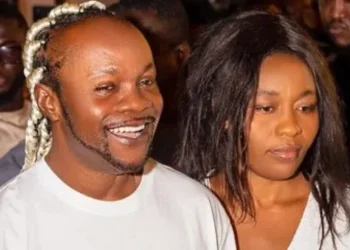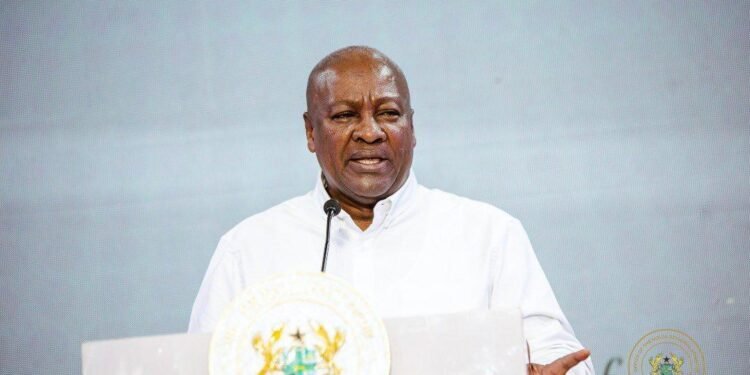Popular narratives that credit a larger, more visible industry with “making” the careers of individuals from a neighboring country are common—and so is the damage they do.
In West Africa, Nollywood’s tremendous output and distribution reach have made it an easy shorthand for regional cinematic success. But to say Nollywood made Ghanaian actors popular is to reduce complex creative histories to a one‑line explanation that privileges scale over agency.
A fairer reading recognizes three facts: Ghana has its own theatrical and film traditions that predate many contemporary transnational dynamics; Ghanaian actors brought distinctive talent and training to every role they played; and the cross‑pollination between Ghana and Nigeria has been reciprocal rather than unidirectional.
Veteran Ghanaian actor Kofi Adjorlolo has sparked a debate in the African film industry with his assertion that Nollywood did not make Ghanaian actors popular.
According to Adjorlolo, Ghana’s movie industry was already thriving and producing stars who could stand shoulder-to-shoulder with other African counterparts before Nigerian producers took notice and collaborated with them.
Adjorlolo’s comments come amid a broader discussion about the relationship between Ghana’s film industry, known as Ghallywood, and Nollywood, with some industry stakeholders debating the impact of cross-border collaborations on local talent and content.
Some notable Ghanaian actors who have made a name for themselves in Nollywood include Majid Michel, Van Vicker, Jackie Appiah, John Dumelo, Juliet Ibrahim, Nadia Buari, Yvonne Nelson, among a host of others.
“Though the Ghana Movie Industry may be having its own problems, it does not mean that Nigerians made us; Ghana Films made Ghanaian actors. The Ghana movie industry and the movies produced made us popular before the Nigerian producers noticed, and called us.”
Kofi Adjorlolo

Ghanaian storytelling, theatre, and performance have deep roots—on stage, in community performance traditions, and in early film and television. Theatre and concert‑party traditions cultivated performers skilled in live acting, comic timing, and audience engagement long before the digital era.
Ghanaian filmmakers and producers also built a local industry with its own stars and markets, including the Twi‑language cinema sometimes called “Kumawood,” and English‑language films that played regionally and at pan‑African festivals.
Filmmakers such as Kwaw Ansah established internationally recognized work from Ghana that demonstrated both artistic ambition and local cultural resonance. These traditions and institutions nurtured generations of actors who developed skills and reputations independent of Nollywood’s rise.
Popularity is not a simple gift handed down by an industry; it’s earned through convincing performances, versatility, professionalism, and the ability to connect with audiences.
Many Ghanaian actors who became household names across West Africa did so because they delivered memorable performances in stage, TV, and film productions in Ghana before—or alongside—their appearances in Nigerian films.
Nollywood’s Role: Exposure and Market, Not Sole Authorship

It is accurate to acknowledge that Nollywood’s scale and distribution networks offered broader exposure for many West African actors in the 1990s and 2000s.
Nigeria’s larger market and prolific production created opportunities for actors to appear before bigger audiences and to work with different directors and production crews. However, exposure is not the same as creation.
The decision to cast Ghanaian actors, the appeal they brought to roles, and the audiences that embraced them were all rooted in the actors’ skills and the cultural affinities between West African audiences—not in a unilateral act of making stars.
Moreover, the relationship has been mutually beneficial: Nigerian productions benefited from Ghanaian talent and aesthetics, and vice versa, creating a regional industry ecosystem rather than a producer‑recipient dynamic.
Some will argue that acknowledging Nollywood’s role in amplifying careers is not the same as denying Ghanaian agency. That’s true: visibility, funding, and distribution matter. But nuance is key.
Saying Nollywood “helped amplify” or “provided larger markets for” Ghanaian actors is accurate and acknowledges structural factors. Saying Nollywood “made” them popular is reductionist.
A balanced account recognizes the structural advantages Nollywood offered while still crediting Ghanaian actors and institutions for the skills, work, and preexisting reputations that made those actors desirable collaborators.
Popularity is never created in a vacuum. It’s the product of talent, training, cultural resonance, institutional support, and sometimes expanded access to markets.
To credit Nollywood alone for the popularity of Ghanaian actors is to commit a historiographical and cultural injustice: it erases the roots of that popularity, diminishes those who earned it, and obscures the collaborative, transnational nature of West African film.
A more respectful and accurate discourse recognizes Nollywood’s role in amplification while affirming Ghanaian actors’ agency, the importance of Ghana’s theatrical and cinematic traditions, and the mutual benefits of cross‑border creative exchange.
READ ALSO: Prof. Asare Slams Hypocrisy Over Chief Justice Removal























